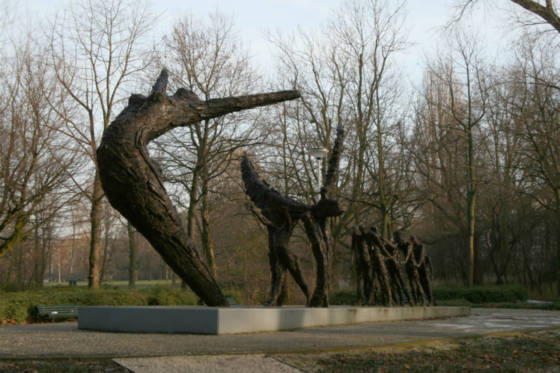Utrecht apologises for slavery role, will pay for name changes


Utrecht city council has become the third of the big Dutch cities to make a formal apology for its role in slavery, following on from Amsterdam and Rotterdam.
Mayor Sharon Dijksma made the statement on Wednesday during a special event focused on the city’s slavery past.
Last June, research into the city’s role in the slave trade showed that the city council, residents, and local institutions not only backed colonial exploitation and slavery, but they also benefited from them directly and indirectly.
‘Apologising for Utrecht’s part in slavery’s past is an important step,’ said Dijksma. ‘Acknowledging this grim and painful chapter in our history will enable us to draw lessons for the future. In addition, we show descendants of victims that we will not forget our past, but rather start a conversation about the history of slavery and its consequences.’
Dijksma also said that the apology should be ‘an example for the government to apologise on a national level, because this issue is broader than Utrecht alone’.
Despite pressure from two of the coalition parties, prime minister Mark Rutte has always refused to apologise for the Dutch role in slavery, saying it would not be appropriate.
Utrecht also said it will compensate the descendants of enslaved people living in the city who wish to change their surname this year, following a vote in support of the move last year.
Changing your name in the Netherlands requires a great deal of paperwork and costs at least €835. However, people who want to change their name because of its colonial roots have to undergo a psychological examination, which can also cost thousands of euros.
Bank
Last week, the Dutch central bank published research showed it was involved in slavery in three ways.
Part of its start-up capital came from business owners with direct interests in plantation slavery in the Atlantic region, for example in Suriname. Of the 16 initial major capital providers, 11 have now been linked to slavery
As an institution, the bank was indirectly involved in Dutch colonial slavery and slavery in non-Dutch areas, such as British Guiana, by supporting the Ministry of Colonies in its day-to-day payment transfers. It also provided services to trading houses involved in slavery.
In addition, several prominent DNB officials were personally involved in colonial slavery with direct links with slavery-related businesses and the management of plantations. Only one or two were involved in organisations working to abolish slavery, the researchers found.
In 2023, it will be 150 years since legislation to abolish slavery was actually enacted in the Netherlands.
Thank you for donating to DutchNews.nl.
We could not provide the Dutch News service, and keep it free of charge, without the generous support of our readers. Your donations allow us to report on issues you tell us matter, and provide you with a summary of the most important Dutch news each day.
Make a donation